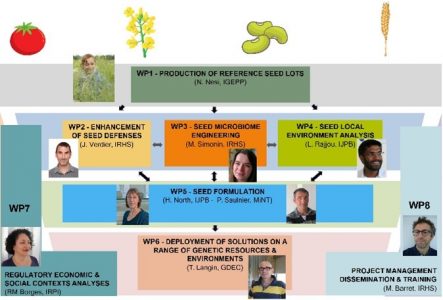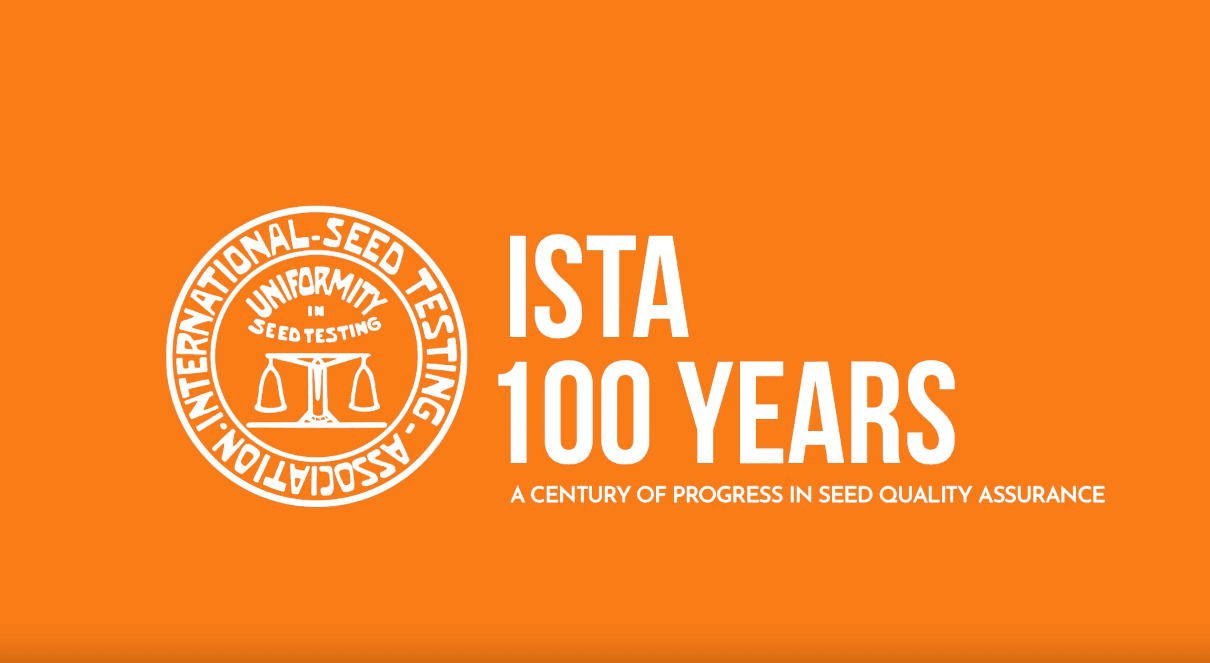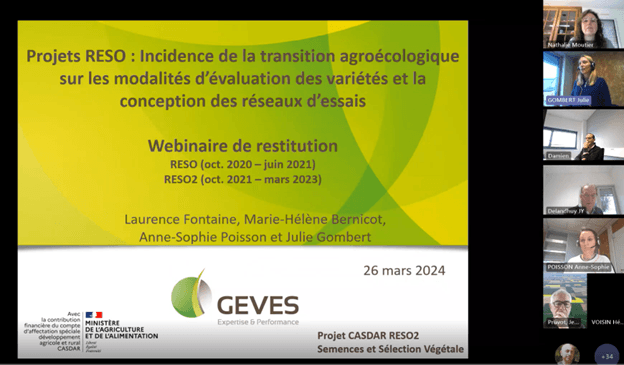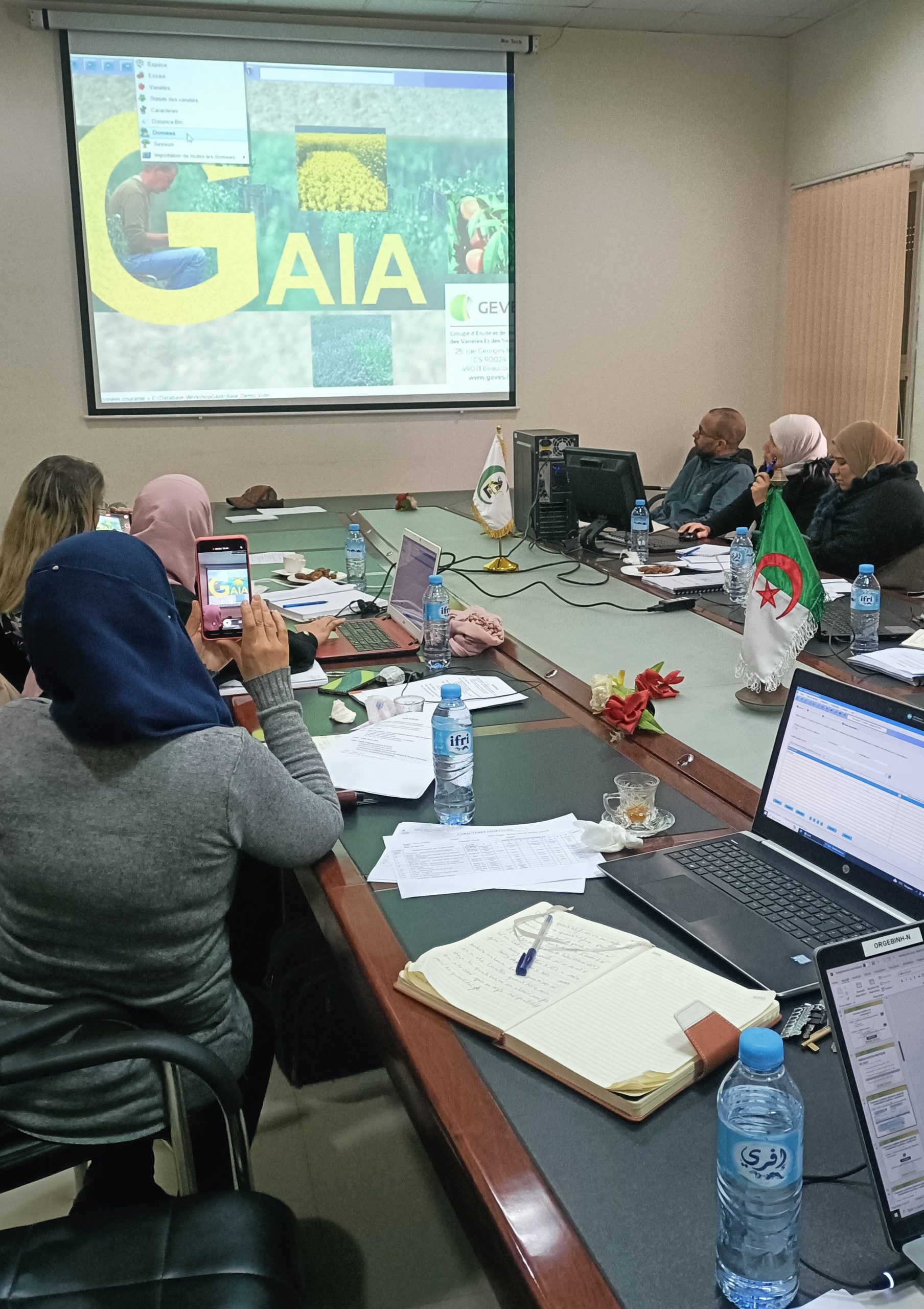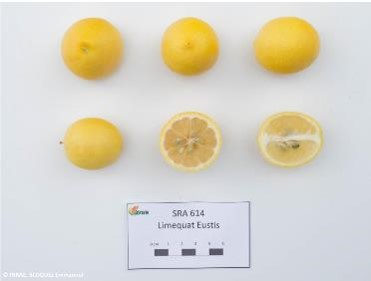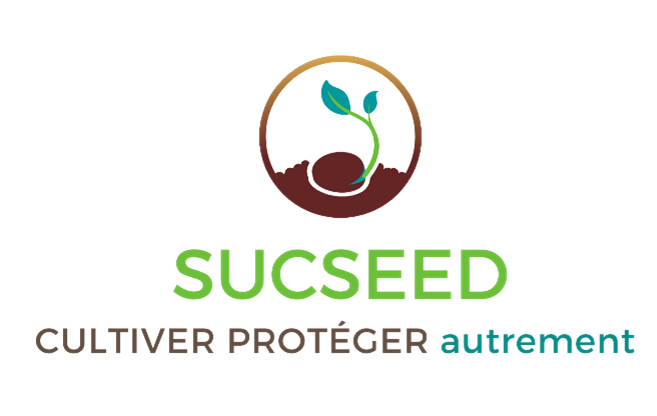
SUCSEED project: After one year, first significant advances towards the identification of bio-inspired seed treatments
On 5 April, the first SUCSEED annual meeting for research advances was held at the Institut Agro Rennes – Angers. Starting in January 2021 as part of the “Protecting and Growing Differently” Priority Research Program, the project aims to identify new bio-inspired and disruptive seed treatments to protect wheat, rapeseed, tomato, and common bean crops. It brings together 20 partners and service providers among them GEVES. Thus, 90 people from public and private organisations, as partner in the project, met to discuss the first results.
Advances of 8 workshops (figure 1) were presented. The outcome was a significant advancement in the methodological development for the identification of agents/molecules of interest.
GEVES has particularly been involved during this first year on:
- physical and physiological characterisation of seed lots used for Research (e.g. 2D radiography, water content, germination speed)
- characterisation of the susceptibility levels of the tomato genotypes studied to the phytopathogen Clavibacter
- Development of method to promote transmission of Clavibacter michiganensis from tomato plants to tomato seeds.
These 3 steps are essential for the screening of microbial communities and molecules of interest.
These advances pave the way for the identification of molecules/agents of interest.
Figure 1:

